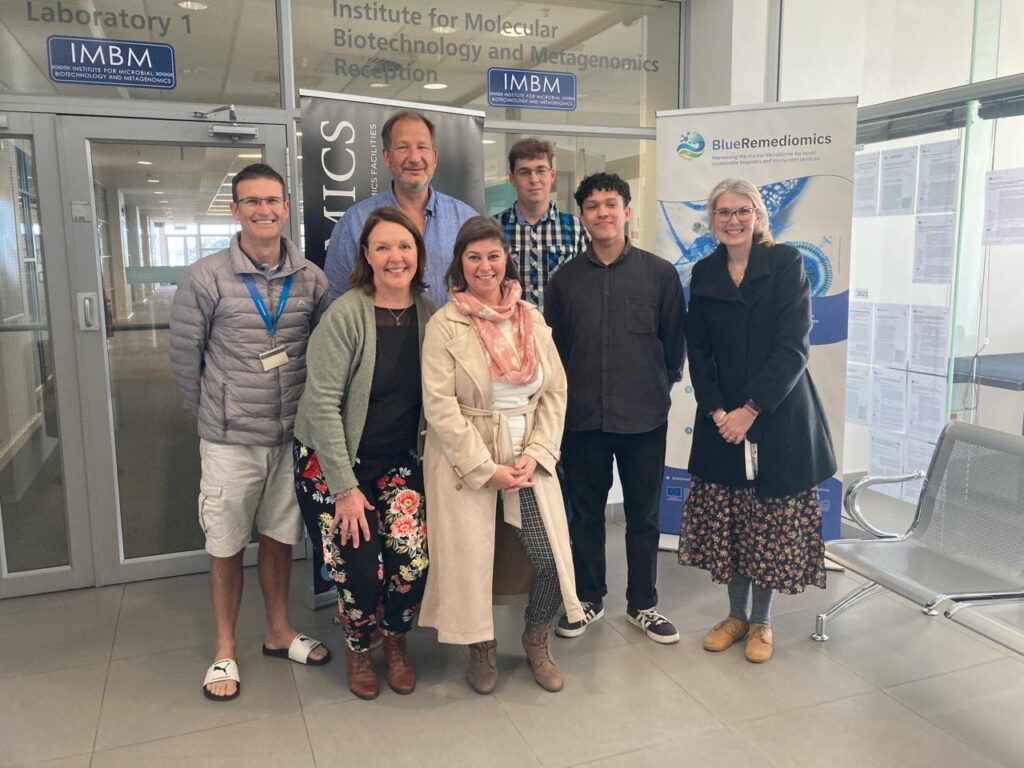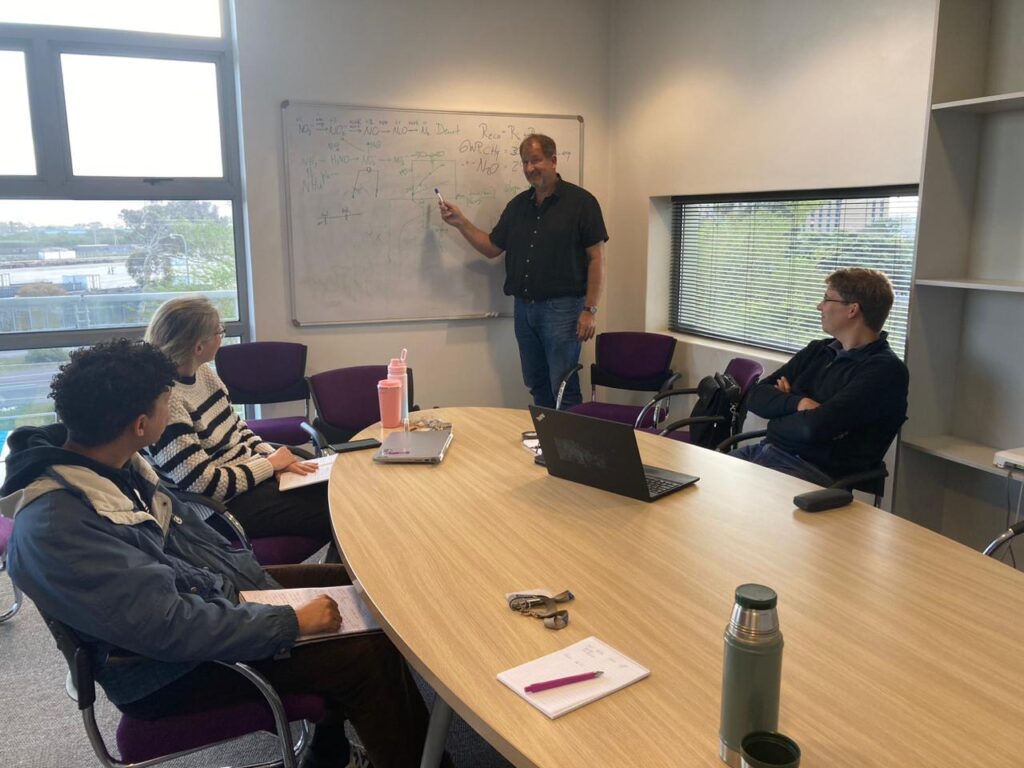The three-year project “Harnessing African Microbial Diversity to mitigate Green House Gas emissions in maize production” is coordinated by the IMBM (UWC) and includes five international partners: Prof Peter Dörsch (Faculty of Environmental Sciences and Resource Management, Norwegian University of Life Sciences), Prof Michele Perazzolli (Center Agriculture Food Environment, University of Trento), Prof Concepción Calvo (Department of Microbiology, University of Granada) and Prof Christopher Ngosong (Agronomic and Applied Molecular Sciences, University of Buea). The IMBM investigators include Profs Bronwyn McCullough and Marla Trindade, Dr Lonnie van Zyl and Mr Kyle Meyer as Magister student.
One of the first activities of the project was the visit of Prof Dörsch and Niklas Wickander, a PhD student on the project, to the IMBM. The visit focused on the sampling techniques that will be employed to capture GHG emission in the field trials that are planned for 2024 and 2025.
The Green ERA-Hub (GEH), is a coordination and support action of the European Commission under the Horizon Europe Framework Programme. The programme coordinates national and international research programmes on Agrifood and Biotechnology.


